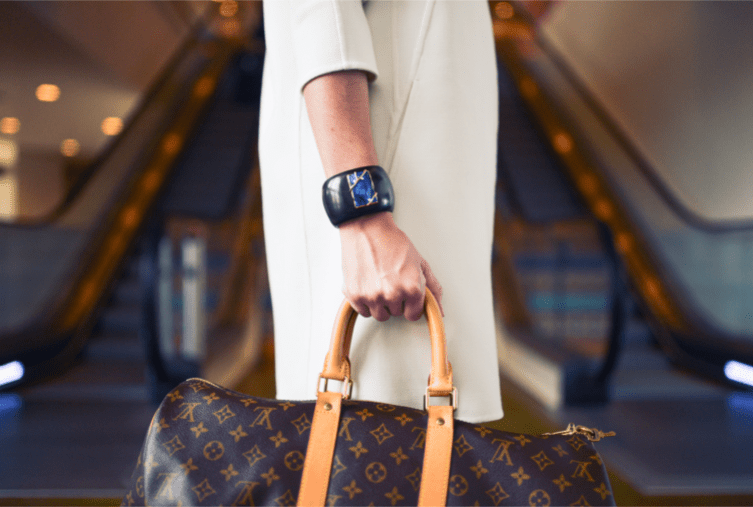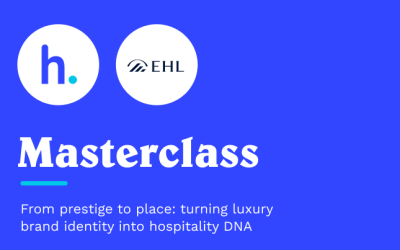Hosco and EHL Graduate School recently hosted a 1-hour online masterclass titled “Where Luxury Meets Hospitality: The Future of Bespoke Luxury Experience”. The webinar featured industry experts Dr. Matthias Fuchs, Assistant Professor of Marketing at EHL and Director of the Institute for Customer Experience Management, and Tim Weiland, General Manager of The Alpina Gstaad.
Read this article to find out how brands are riding on luxury hospitality for delighting their customers, and factors driving the exponential growth of the luxury goods market. You’ll also discover how to position yourself in this niche as a jobseeker. Catch the webinar replay below (in English only) or read on for a summary that packs a punch!
Luxury Market Growth Trajectory From 1995-2022
Consumption in the luxury segment has increased considerably and steadily. According to data by Bain & Company, the luxury industry had 90 million customers in 1995 and clocked 330 million in 2013. Similar to most industries, luxury brands suffered a halt during the COVID-19 pandemic. The good news is that the comeback is on. The industry recorded sales of €1.15 trillion in 2021, and continued its growth in 2022 by 19%-21% post pandemic.
According to Matthias, two key factors are behind this growth:
- First up, luxury brands are attracting younger consumers and are no longer the exclusive preserve of old money. The new cohorts of the nouveau riche and newly employed Gen Z and Gen Alpha are gravitating towards bespoke luxury experiences, expanding market and revenue streams for these conglomerates. There is still more good news for these brands: with these New Kids on the Block set to become the majority workforce by 2030, Matthias predicts the industry will continue to experience growth into the foreseeable future.
- With the current high cost of living and difficult economic times, it beggars belief that younger generations are affording luxury brands. This brings up the second factor behind the growth of luxury aka ‘The Lipstick Effect’. This theory presupposes that, during economically difficult times, consumers often opt for cheaper luxury goods, such as dream holidays or luxurious clothes. Since consumers can’t afford high-end luxuries such as purchasing a house, splurging their money on the luxuries they can afford becomes the new playing field.
Alpes-Maritimes, recognized globally for its luxury hospitality sector, is a captivating blend of natural beauty and vibrant cities. Discover career opportunities available at this magical tourist destination.
Bespoke Luxury Experiences: The Secret Sauce for Maintaining Growth While Remaining Exclusive
What is considered luxurious should be exclusive and rare. So, the question becomes: how can brands retain their luxury touch and remain accessible only to a select group of consumers?
The answer, according to Matthias, lies in luxury brands pivoting to delivering stellar experiences to their niche market. The rationale is clear: while selling additional products would dilute the brand equity, selling bespoke luxury experiences to consumers—either in retail or standalone networks—can strengthen the brand.
Tim, on the other hand, observes that investing in luxury hospitality is also driven by customers' desire for an authentic luxury experience. With so many fake ‘luxuries’ out there, investing in a memorable travel and leisure experience allows luxury brands to delight their customers and enhance brand perception.
Recent examples of luxury brands implementing bespoke hospitality experience include:
- Journe: Journe, the independent high-end watchmaker, opened a 52-seat restaurant in Geneva’s Rue du Rhône, the city’s most luxurious shopping street.
- Louis Vuitton: Louis Vuitton jumped into the restaurant business with the opening of Le Café V and Sugalabo V inside its new flagship store in Osaka, Japan.
Considering that 81% of Gen Z consumers prefer physical stores to online retail, Matthias opines that operating restaurants make perfect sense for these luxury brands. Physical shopping also allows this customer segment to disconnect from social media and the world around them.
There is, however, a reality check for luxury brands. Offering bespoke hospitality services leaves no room for error, and the learning curve can be quite steep. Any misstep might do more damage to the brand, making the effort a double-edged sword. Collaborating with training institutions, such as EHL, to help in brand curation and educational programs can make the shift smoother and worthwhile.
Looking to scale the career heights of luxury hospitality management? Hear from Tim Weiland himself in this exclusive interview with Hosco.
Entering the Luxury Hospitality Industry: 3 things you need to know
Demand for luxury hospitality is not just dependent on collaborations and brand exposure, but also on labour supply. According to Matthias, 37% of current EHL students aspire to work in the luxury industry. If you’re considering getting into luxury hospitality industry, here are 3 things you need to know:
-
Technology Is Likely to Impact Luxury Hospitality
Technology will be a key cog in delivering luxury customer experiences, so it is essential for job seekers looking to enter this niche to stay ahead of the tech curve. Key technologies likely to revolutionise the industry include artificial intelligence, 3D, and virtual reality. For instance, technology will enable hospitality businesses to provide an omnichannel experience. Blockchain will help customers authenticate products, while virtual reality will enable customers to preview luxury destinations and experiences before actual visits. Familiarity with these types of technology can give you a leg up in hospitality recruitment.
-
The Right Training Can Prepare You for a Luxury Niche Career
Working in the luxury industry can be a challenge for mainstream hospitality employees. One key challenge is the need to adjust from attending to run-of-the-mill clientele to a customer base deeply mired in a luxurious life—from their choice of menu, room service preferences, and other related services. The economic disparity between hotel sector employees and clients can create uncomfortable situations that negatively affect the customer experience. With the right training, luxury tourism and cruise workers can be empowered to deliver exceptional customer experiences all the time.
-
Consider How You Stand Out When Applying For Luxury Hospitality Jobs
Matthias advises students to choose their courses wisely to stand out in the job market. The right courses can help in familiarising yourself with the luxury industry from an early stage and prepare your mindset for working in this niche. Students also need to work on real-life projects with luxury brands to gain practical industry experience. This gives them a glimpse of what it takes to excel in luxury brand marketing and build networks with people already working in the luxury industry. Weiland advises job candidates to have the right attitude, be open-minded, and exhibit cultural flexibility to thrive in this career.
Want to Craft a Career in Luxury Hospitality? Check Out EHL’s Tailored Education Programs
As a leader in hospitality training, EHL is committed to helping hospitality employers and employees deliver value to the luxury market. EHL runs several educational programs, such as short seminars covering marketing luxury brands. The school also offers bachelor's and master's degrees with specialisations in luxury, branding and executive education. Learners can develop key skill sets, such as customer centrism, to enable them to handle high-end clients confidently and reassuringly.
Looking to land a dream luxury hospitality job? Try one of these 6 luxury resorts to lift your career to new heights.




